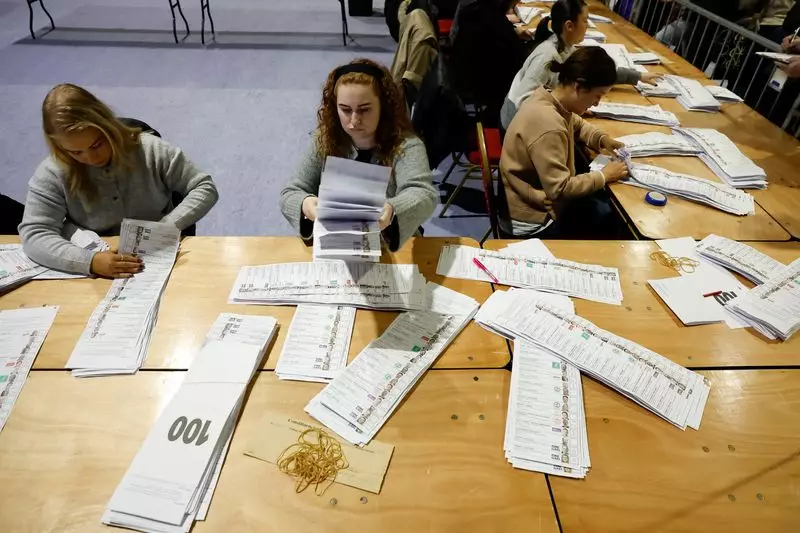In the wake of Ireland’s recent election, the nation stands at a political crossroads. Two historically dominant centre-right parties, Fine Gael and Fianna Fáil, look poised to reclaim power. However, the pathway to a stable government appears turbulent, necessitating the inclusion of junior coalition partners to secure a parliamentary majority. This situation introduces elements of uncertainty, particularly in light of external pressures, such as the forthcoming presidency of Donald Trump and its implications for the Irish economy.
The election yielded a mixed bag regarding party performances, with Fine Gael and Fianna Fáil garnering around 21% and 19.5% of the votes respectively, falling just short of the left-leaning Sinn Féin, which is ahead with an exit poll estimate of 21.1%. This revealed an electorate that is evidently shifting, yet still somewhat retracted. The two leading parties are confronted with the pressing question of how to construct a functional government while intentionally avoiding alliances with Sinn Féin, a party long associated with the Irish Republican Army.
Analysts, including politics professor Gary Murphy, highlight that if both parties occupy the 20% range, they would likely achieve close to 80 seats in a 160-seat Dáil Éireann, igniting discussions about possible coalition formations. The most viable pathway for governance seems to rely on collaboration with smaller centre-left parties, which could bolster their seat count to a majority. Nevertheless, increased coalition complexity raises concerns about long-term stability and governance efficacy.
The prospect of a government formed by four parties, should negotiations with both Labour and the Social Democrats materialize, presents challenges to stability. Each additional partner increases the potential for disagreements and complicates policy consensus. Historically, such multifaceted coalitions exhibit fragility, frequently leading to intra-party conflicts and disruptions to policy implementation. The declining support for the current junior coalition partner, the Greens—witnessing a drop from 7% to 4%—further complicates the landscape, with potential seat numbers dwindling from 12 to as few as three, as noted by senior member Ciaran Cuffe.
This precarious position is exacerbated by a growing sense of voter disillusionment stemming from the government’s past difficulties in translating financial triumphs, characterized by healthy public finances, into tangible public service improvements. The electorate is left grappling with an expectation for effective governance amidst fiscal prosperity, and a perceived lack of progress could impact future elections.
The narrative of discontent presents a considerable challenge for Fine Gael and Fianna Fáil, especially in light of Prime Minister Simon Harris’ leadership during a financially indulgent election campaign. His administration’s implementation of a €10.5 billion giveaway budget was intended to win voter approval by directly placing money within public reach. However, missteps during the campaign—including a damaging viral video showcasing an encounter between Harris and a frustrated care worker—cast shadows on the government’s competence.
Adding to the intrigue, Sinn Féin, having previously appeared as the potential frontrunner, faced a notable decline in public support driven by dissatisfaction from its traditional working-class base, particularly over immigration policies deemed too liberal. This ebb and flow of voter sentiment underscores the volatile nature of Irish politics, with public sentiment influenced by a myriad of factors, both local and international.
As votes continue to be counted, the overarching narrative within Ireland’s political landscape remains one of uncertainty. The need for coalition building introduces variables that could jeopardize the effectiveness of the government. While historical precedent suggests that Fine Gael and Fianna Fáil have held a firm grip on power, the shifting political attitudes among the electorate and the complexities of potential coalition dynamics could lead to unstable governance. The forthcoming months will determine not only the composition of the government but also the resilience of its policies in the face of impending global economic challenges. The stakes are high, with the fate of the nation’s political stability hanging in balance as negotiations unfold.

